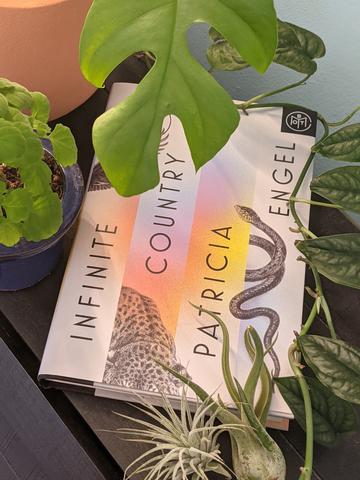Book Review: The Vanishing Half

Posted: April 21, 2021
The Vanishing Half is a multigenerational family saga that primarily explores the lives of two twin sisters, Desiree and Stella. The sisters begin their lives in Mallard, Louisiana, a fictional town founded by their great-great-great grandfather. Mallard prides itself on being an exclusive home to light-skinned blacks, and as “nobody married dark,” over the years, its population became lighter and lighter over the generations, “like a cup of coffee steadily diluted with cream.” Desiree and Stella were the product of such efforts, and although their light skin and wavy hair are the pinnacle of success for a town like Mallard, the twins decide to run away to start a new life together in New Orleans.
As readers we are informed that shortly after the twins arrived in New Orleans, they split up and began living two completely separate lives. Desiree marries a man of very dark complexion, while Stella falls into a life of “passing”as a white woman. Stella’s choice and the resulting cascade of moral decisions she has to make to keep her “white” life are what make up the largest mystery of this novel. She disappears overnight from Desiree’s life completely, and we’re left to unravel the causes and consequences of racial passing.

The narration is third person, and follows a sometimes complex sequence of events that take place mainly between the 1950’s and 1980’s. There are time jumps, but they are woven together so cleanly that they don’t end up being jarring or confusing in any way. There isn’t a lot of filler or unnecessary interactions, each piece of the book adding to the larger story in a meaningful way. To be completely honest I was expecting to need more breaks while reading, as I knew it would cover an array of heavy topics, but the story moved forward in such an effortless manner that I couldn’t help but keep turning the pages.
The language is, in a word, beautiful. Brit Bennett translates the complex emotions of her characters into such vivid imagery that I remember choosing to reread certain passages just because they hit in such a profound way. At one point a death in the family hits a character “in waves. Not a flood, but water lapping steadily at her ankles”, and then continues on to say “You could drown in two inches of water. Maybe grief was the same.” Bennett perfectly captures very specific, human experiences in such a way that it breaks your heart at times. I couldn’t get enough of it.
The characters themselves were complex and mysterious, and the driving force behind this plot is unraveling their individual stories. The fact that Desiree and Stella are twins allows us to explore themes of nature versus nurture and the divided self on a deeper level, and it was fascinating to follow their completely different life paths. Desiree’s daughter Jude and Stella’s daughter Kennedy provide insight from the opposite end of the spectrum, as we observe the experiences of someone who is born inarguably black, and another who believes herself to be completely white.

Transgender issues were also part of the novel in the form of Reese, Jude’s partner. While the introduction of transgender themes into the story almost felt in excess to everything else being explored within the 352 pages of this book, it did manage to tie in neatly with the overall themes of finding one’s self-identity vs living with a socially-assigned identity. Even though Reese was more of a side-character, the interactions and relationship between him and Jude were some of the most enjoyable and heartfelt parts of the book for me.
One of the more surprising things about this book was how I found myself sympathizing with characters who I thought I would have no pity for, and how given enough time and information I could come to understand the decisions they made for themselves. Overall I thoroughly enjoyed The Vanishing Half, and would recommend it for its gorgeous language, insightful social commentary, and dynamic characters.
9
9
10
9.3





